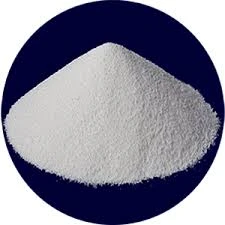- Afrikaans
- Albanian
- Amharic
- Arabic
- Armenian
- Azerbaijani
- Basque
- Belarusian
- Bengali
- Bosnian
- Bulgarian
- Catalan
- Cebuano
- Corsican
- Croatian
- Czech
- Danish
- Dutch
- English
- Esperanto
- Estonian
- Finnish
- French
- Frisian
- Galician
- Georgian
- German
- Greek
- Gujarati
- Haitian Creole
- hausa
- hawaiian
- Hebrew
- Hindi
- Miao
- Hungarian
- Icelandic
- igbo
- Indonesian
- irish
- Italian
- Japanese
- Javanese
- Kannada
- kazakh
- Khmer
- Rwandese
- Korean
- Kurdish
- Kyrgyz
- Lao
- Latin
- Latvian
- Lithuanian
- Luxembourgish
- Macedonian
- Malgashi
- Malay
- Malayalam
- Maltese
- Maori
- Marathi
- Mongolian
- Myanmar
- Nepali
- Norwegian
- Norwegian
- Occitan
- Pashto
- Persian
- Polish
- Portuguese
- Punjabi
- Romanian
- Russian
- Samoan
- Scottish Gaelic
- Serbian
- Sesotho
- Shona
- Sindhi
- Sinhala
- Slovak
- Slovenian
- Somali
- Spanish
- Sundanese
- Swahili
- Swedish
- Tagalog
- Tajik
- Tamil
- Tatar
- Telugu
- Thai
- Turkish
- Turkmen
- Ukrainian
- Urdu
- Uighur
- Uzbek
- Vietnamese
- Welsh
- Bantu
- Yiddish
- Yoruba
- Zulu
Dis . 12, 2024 21:26 Back to list
Using Doxycycline Hyclate Safely for Canine Health and Treatment Options
Doxycycline Hyclate for Dogs An Overview
Doxycycline hyclate is a broad-spectrum antibiotic that belongs to the tetracycline class of antibiotics. It is widely used in veterinary medicine for the treatment of various infections in dogs, as well as other animal species. This article discusses the uses, dosage, potential side effects, and important considerations for using doxycycline hyclate in dogs.
Uses of Doxycycline Hyclate
Doxycycline is effective against a variety of bacterial infections and is commonly prescribed for conditions such as
1. Respiratory Infections Doxycycline is frequently used to treat respiratory problems caused by bacteria, such as kennel cough and pneumonia. It works by inhibiting bacterial protein synthesis, thus stopping the growth of the bacteria responsible for the infection.
2. Skin Infections This antibiotic is also employed in treating skin infections, particularly those caused by susceptible bacteria. Conditions resulting from bacterial infection, such as pyoderma, can benefit from doxycycline therapy.
3. Tick-Borne Diseases Doxycycline is especially important in areas where tick-borne diseases are prevalent. It is commonly prescribed for conditions such as Lyme disease, ehrlichiosis, and anaplasmosis in dogs. These diseases can lead to serious health issues if left untreated.
4. Urinary Tract Infections Doxycycline may be indicated for some urinary tract infections, depending on the type of bacteria involved.
Dosage and Administration
The dosage of doxycycline hyclate for dogs varies depending on the specific infection being treated, the severity of the condition, and the weight of the animal. A typical dosage range may be between 5 to 10 mg per kilogram of body weight administered once every 12 to 24 hours. It's crucial to follow the veterinarian's instructions regarding the dosage and duration of treatment, as improper use can lead to antibiotic resistance and treatment failure.
Doxycycline is available in different forms, including tablets, capsules, and liquid formulations, making it easier for pet owners to administer the medication as prescribed. It's advisable to give the drug with food to minimize gastrointestinal upset, which can occur with tetracycline antibiotics.
doxycycline hyclate for dogs

Side Effects
While doxycycline is generally well-tolerated, some dogs may experience side effects. Common side effects include
- Gastrointestinal Upset Symptoms may include vomiting, diarrhea, or loss of appetite. These effects are often mild but can be bothersome.
- Photosensitivity Doxycycline can increase a dog's sensitivity to sunlight, leading to the risk of sunburn or skin reactions. Pet owners should ensure that their dogs are protected from excessive sunlight exposure during treatment.
- Tooth Discoloration In younger dogs, doxycycline can interfere with bone and tooth development, leading to discoloration of teeth. Therefore, it is generally avoided in puppies and young dogs unless absolutely necessary.
In rare cases, dogs may experience severe allergic reactions to doxycycline, characterized by difficulty breathing, swelling of the face or limbs, or hives. If any severe side effects occur, immediate veterinary attention is required.
Important Considerations
Before prescribing doxycycline hyclate, veterinarians will consider the dog's overall health, pre-existing medical conditions, and any other medications being administered to avoid potential drug interactions. Doxycycline is not recommended for use in pregnant or nursing dogs due to the potential risks for the developing fetus or nursing puppies.
Monitoring the dog’s response to treatment is also vital. Pet owners should observe their dogs for any signs of improvement or worsening of symptoms. If there is no improvement within a few days, or if side effects become concerning, a follow-up with the veterinarian is recommended.
Conclusion
Doxycycline hyclate is a valuable antibiotic in the treatment of bacterial infections in dogs. Its efficacy against a wide range of pathogens makes it a go-to choice for veterinarians. However, pet owners should be informed about its proper usage, potential side effects, and the importance of veterinary guidance in ensuring the health and safety of their furry companions. Always consult a veterinarian for advice tailored to the specific health needs of your dog.
-
Guide to Oxytetracycline Injection
NewsMar.27,2025
-
Guide to Colistin Sulphate
NewsMar.27,2025
-
Gentamicin Sulfate: Uses, Price, And Key Information
NewsMar.27,2025
-
Enrofloxacin Injection: Uses, Price, And Supplier Information
NewsMar.27,2025
-
Dexamethasone Sodium Phosphate Injection: Uses, Price, And Key Information
NewsMar.27,2025
-
Albendazole Tablet: Uses, Dosage, Cost, And Key Information
NewsMar.27,2025













